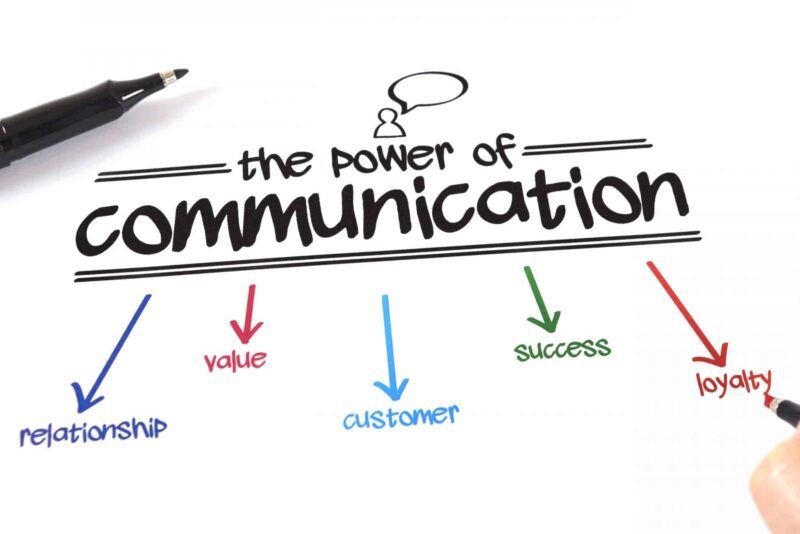Overthinking in a relationship involves excessive worrying and analyzing about various aspects of the relationship, often leading to unnecessary stress and anxiety. This habit can create a significant negative impact, including misunderstandings, reduced emotional intimacy, and even the potential breakdown of the relationship.
It’s essential to recognize and tackle overthinking to maintain a healthy and fulfilling partnership. Understanding the root causes and triggers of overthinking can help in developing effective strategies to overcome it, ensuring a more peaceful and stable relationship.
Recognize Overthinking
Recognizing overthinking in a relationship involves being aware of signs like constant worry about the relationship’s future, analyzing every interaction in detail, and fearing negative outcomes even from minor issues.
This may also manifest as difficulty in making decisions, seeking constant reassurance, or having repetitive thoughts about relationship conflicts. Self-awareness is key in identifying these patterns. Understanding your thought processes and how they affect your relationship dynamics is crucial. Acknowledging that you’re overthinking is the first step towards changing these patterns and fostering a healthier mindset in your relationship.
Communication is Key

Effective communication is the cornerstone of any healthy relationship. It involves more than just talking; it’s about sharing thoughts, feelings, and concerns in a way that is open and honest. To initiate difficult conversations, it’s important to choose a calm and appropriate time, express your feelings without blame, and actively listen to your partner’s perspective.
This approach fosters understanding and empathy, reducing the likelihood of misunderstandings that can fuel overthinking. Encouraging a culture of open communication can help both partners feel heard and understood, creating a stronger, more trusting relationship. If you’re ready to take a step forward please visit relationshippp.com.
Set Boundaries
Setting healthy boundaries is crucial in any relationship. It involves understanding and respecting each other’s needs, limits, and personal space. Establishing boundaries helps in maintaining individuality and preventing overdependence, which can lead to overthinking.
To set effective boundaries, communicate your needs clearly, respect your partner’s boundaries, and be willing to compromise. It’s also important to enforce these boundaries consistently. Healthy boundaries create a sense of security and trust, allowing both partners to feel comfortable and reducing the urge to overthink.
Trust Your Partner

Trust is a fundamental element in a relationship. It’s about believing in your partner’s integrity and feeling secure with them. Building and maintaining trust requires honesty, consistency, and reliability.
To enhance trust, focus on open communication, keep promises, and show understanding and support. Trust helps in reducing the need to overthink as it assures you of your partner’s commitment and loyalty. Remember, trust is built over time through consistent actions and understanding.
Mindfulness and Self-Care
Mindfulness is a powerful tool in combating overthinking. It involves being present in the moment and observing thoughts and feelings without judgment. Practicing mindfulness can help in recognizing and letting go of unproductive thoughts.
Self-care practices, such as exercise, adequate sleep, and engaging in hobbies, also play a crucial role in reducing anxiety and stress. Taking care of your mental and physical well-being helps in maintaining a balanced perspective in the relationship.
Stay Present

Staying present focuses on living in the current moment rather than worrying about the past or future. This approach helps in appreciating the relationship as it is, without the burden of overthinking.
Techniques to stay present include mindfulness exercises, focusing on your senses, and engaging in activities that you enjoy with your partner. Staying present allows you to enjoy and value your relationship more, reducing the tendency to overthink.
Challenge Negative Thoughts
Challenging negative thoughts is about identifying and questioning irrational or unhelpful thought patterns that fuel overthinking. It’s important to replace these thoughts with positive affirmations and realistic perspectives.
For instance, instead of thinking, “My partner didn’t call me, something must be wrong,” try to shift your perspective to, “My partner might be busy; they will reach out when they can.” This change in mindset can significantly reduce anxiety and foster a more positive outlook in the relationship. Regularly practicing this can gradually transform your thought patterns, leading to a healthier and more optimistic relationship dynamic.
Seek Support

Seeking support from friends, family, or a therapist is a proactive step in managing overthinking. Discussing your concerns with someone you trust can offer a fresh perspective and valuable advice, which is often hard to see when you’re caught up in your thoughts. In some situations, professional help may be necessary to delve into deeper issues that contribute to overthinking.
Therapists can provide strategies and tools tailored to your specific needs. Remember, seeking support is a sign of strength and a commitment to improving both your personal well-being and the health of your relationship.
Learn from Past Experiences
Learning from past relationship experiences is key to breaking the cycle of overthinking. Reflecting on past mistakes and understanding what triggered your overthinking in those instances is an insightful exercise. Use these insights to make informed choices and respond differently in your current relationship.
This process of reflection and learning helps in growing and evolving as a partner. It also aids in recognizing patterns that may lead to overthinking, allowing you to proactively address them before they escalate. This growth not only benefits your current relationship but also contributes to your personal development.
Practice Patience

Patience is a vital component in resolving relationship issues and overcoming the habit of overthinking. It involves allowing yourself and your partner the necessary time to understand and work through challenges. Developing patience can be achieved by practicing mindfulness, setting realistic expectations, and showing compassion towards yourself and your partner.
Being patient helps in creating a more relaxed and understanding environment in the relationship. It also means accepting that progress and change take time, and instant solutions are not always feasible. Patience fosters a supportive atmosphere conducive to open communication and mutual growth.
Conclusion
To stop overthinking in a relationship, it’s important to recognize the signs, communicate openly, set healthy boundaries, build trust, practice mindfulness and self-care, stay present, challenge negative thoughts, seek support, learn from past experiences, and practice patience.
Implementing these strategies can lead to a more peaceful and fulfilling relationship. Remember, change takes time and effort, but the benefits to your relationship’s health and your well-being are well worth it.













